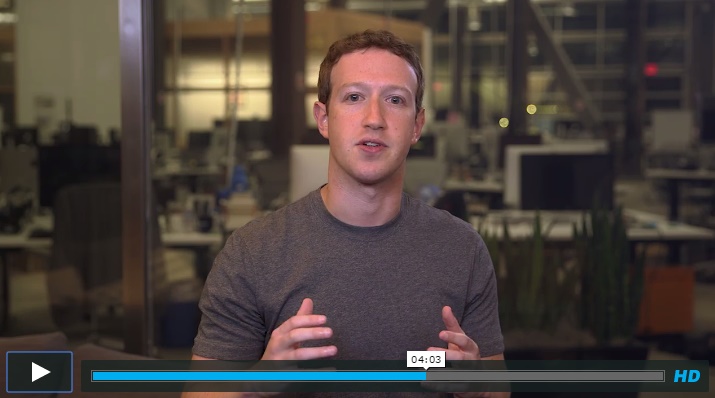
Internet.org Platform raises new questions on the debate about Zero-Rating and the Digital Divide
Author: Pedro Henrique Ramos*
Earlier this morning (5/4), Facebook released the Internet.org Platform, through which mobile developers can optimize and integrate their mobile websites and applications within the Internet.org app. First launched in 2013, Internet.org is a global consortium headed by Facebook which aims to promote initiatives and studies that can help to reduce the costs related to Internet access.
With the Internet.org Platform, developers will be able create light versions of their content, with low bandwidth usage, which may be integrated in the Internet.org app, allowing users to access content despite poor broadband connections and at low cost for both users and operators. This is a critical statement for developing countries such as Congo, where a mobile broadband plan costs far more than the average GNI per capita.
According to the company statement, the platform is open to all developers, who will have to share these guidelines:
Explore the entire Internet – The Internet.org Platform aims to give people valuable free services that they can use to discover the entire wealth of online services and, ultimately become paying users of the Internet. Services should encourage the exploration of the broader Internet wherever possible.
Efficiency – To sustainably deliver free basic Internet services to people, we need to build apps that use data very efficiently. Operators have made significant economic investments to bring the Internet to people globally, and Internet.org needs to be sustainable for operators so that they can continue to invest in the infrastructure to maintain, improve and expand their networks. Websites that require high-bandwidth will not be included. Services should not use VoIP, video, file transfer, high resolution photos, or a high volume of photos.
Technical specifications – Websites must be built to be optimized for browsing on both feature and smartphones and in limited bandwidth scenarios. In addition, websites must be properly integrated with Internet.org to allow zero rating and therefore can’t require JavaScript or SSL/TLS/HTTPS and must meet these technical guidelines.
One of the delicate aspects of Internet.org is that, by a complex myriad of partnerships with local carriers, the Internet.org app is currently offered as a zero-rating app, that is, customers are exempted by their carrier from data charges related to the use of such app. The first of these partnerships took place in Zambia in July 2014, when Facebook announced the Internet.org app, by which users could access a set of pre-selected applications such as Facebook, AccuWeather, Google Search, Messenger and Wikipedia, in partnership with Airtel. Hence, with the Internet.org Platform, Facebook seems to answer criticism around the criteria adopted by Facebook to select such bundled-apps, in a manner similar to the one adopted by T-Mobile with music streaming applications.
Notwithstanding the above, zero-rating is far from unanimity, being the subject of research in hot scholarly debates. On one side of the front, researchers have recognized the social benefits in connection with zero-rating, and that it may contribute positively to the reduction of the digital divide. On the other side, many scholars have argued against it, assuming competition effects and also pointing to adverse effects on freedom of expression and promotion of local content and innovation.

Answering such criticism, Facebook CEO Mark Zuckerberg recently released a video in which he presents his view on zero-rating, stating that this model can and must coexist with net neutrality, the principle that Internet service providers and governments should treat all data on the Internet equally, not discriminating or charging differentially by user, content, site, platform. Nonetheless, today’s announcement shows that the Menlo Park giant seems to be addressing an answer to critics; as presented in the Participation Guidelines,
It’s important to remember that it’s the operators who are making these services available for free. Developers do not pay to be included, and operators do not charge developers for the data people use for their services. Operators may decline services that cause undue strain to networks, or breach legal or regulatory requirements.
In other words, while Zuckerberg defends the coexistence between net neutrality and zero-rating, the company seems to move away from its responsibility on this debate. Offering low usage applications seems to be the new and reframed goal of the company with the Internet.org app, and the decision to offer or not a zero-rating program associated with the app seems to be pushed against carriers, who can even decide which applications they want to offer or not a zero-rated deal.
There is no doubt that the zero-rating debate is still embryonic. As I have discussed elsewhere, although there is a major opinion against zero-rating, there is still a lack of empirical evidence, as well as important research questions to be addressed. In this sense, the Internet.org Platform presents new questions that heat the debate: in practical terms, how will Facebook select content for Internet.org? If Internet.org grows to a huge all-in-one app with higher popularity, will it still be an interesting deal for carriers, since such app may consume a lot of bandwidth without direct revenues? Can Internet.org app have social benefits even without zero-rating? How will Facebook deal with users’ personal data in connection with such application?
*Pedro Henrique Ramos is a fellow researcher at the InternetLab. He is a lawyer and Master of Laws (FGV-SP)